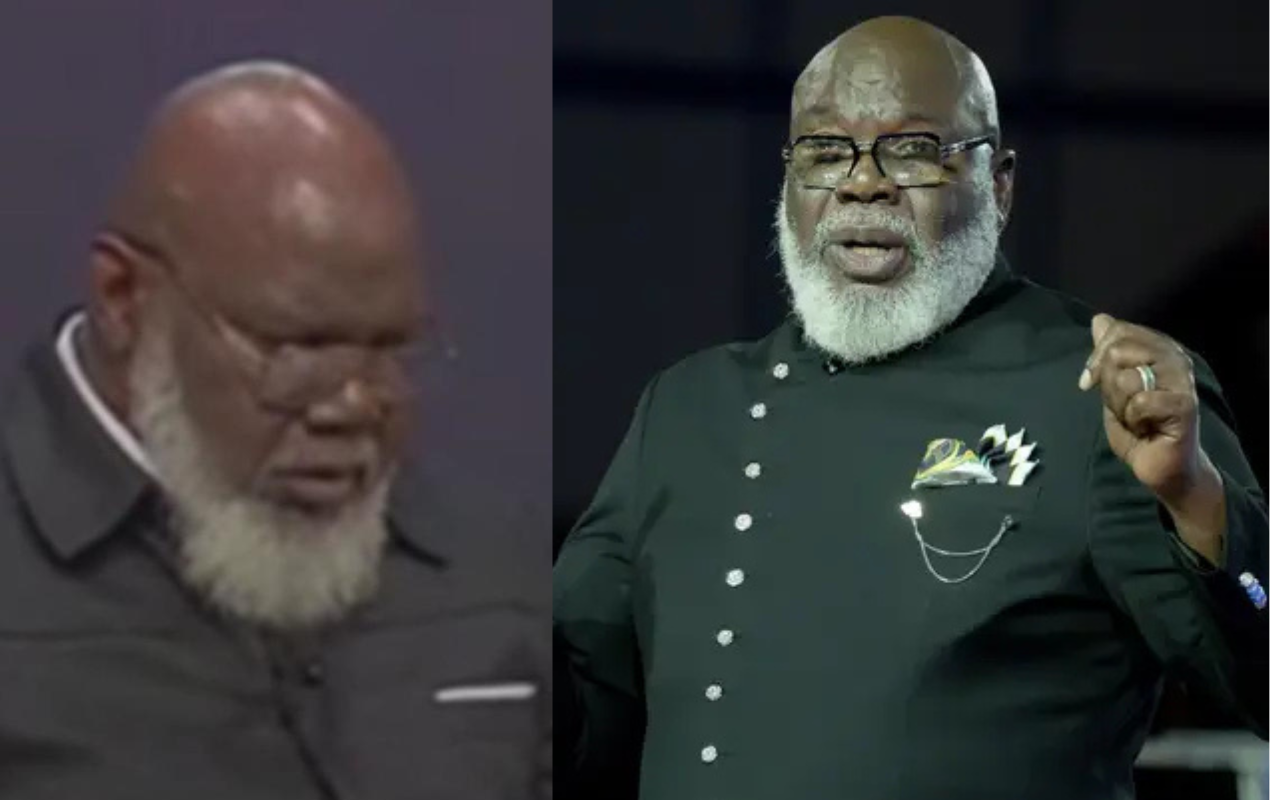
In today’s digital age, rumors and misinformation can spread faster than ever, damaging reputations and causing lasting harm. This is exactly what Bishop T.D. Jakes, the prominent megachurch pastor of The Potter’s House in Dallas, Texas, is fighting against. After facing a health crisis attributed to the stress caused by defamatory comments online, Jakes is taking a bold stand to protect his name and his ministry. And in doing so, he’s calling for a change in how platforms like Google and YouTube handle the spread of false information.
The Power of Words—and the Damage They Can Do
Imagine being a globally recognized leader and finding your reputation under attack by anonymous individuals making false claims about your character. For Jakes, this nightmare became a reality when several YouTube accounts began circulating harmful rumors about him. These accounts, allegedly linked to individuals in Pakistan, South Africa, the Philippines, and Kenya, pushed misinformation about Jakes, falsely accusing him of involvement in criminal activities.
The claims, which range from false accusations of sexual misconduct to fabricated stories about his personal life, were not just damaging to Jakes’ reputation—they took a physical toll on him. In November 2024, just days after these lies gained traction, Jakes suffered a medical crisis during a Sunday service, an event his attorneys linked directly to the stress caused by these false rumors. His attorneys argue that these malicious lies have not only harmed Jakes emotionally but have also jeopardized the philanthropic efforts of his ministry, which impacts millions of people.
Google, YouTube, and the Search for Justice
In response to these attacks, Jakes has filed a motion in a California court, demanding that Google assist in identifying the individuals behind the defamatory YouTube accounts. The megachurch pastor’s attorneys have asked the court to compel Google to release information that could lead to identifying the perpetrators of these damaging videos. This legal action is not just about protecting one man’s reputation—it’s about holding platforms accountable for the content they allow to flourish, often unchecked.
As the case unfolds, it raises important questions about the role of social media platforms in regulating content and protecting individuals from online defamation. Should platforms like YouTube be held accountable for allowing misinformation to spread so easily? Or should the responsibility lie with the creators of harmful content? Jakes’ legal battle is setting a precedent that could impact how social media handles the delicate balance between freedom of expression and the protection of reputations.
The Personal and Public Toll of Misinformation
For Jakes, the impact of these false rumors is deeply personal. As a public figure who has dedicated his life to ministry, the accusations have not only threatened his career but also taken a toll on his health. The megachurch leader has spent decades building a reputation as a faith-driven, compassionate leader. Now, he’s fighting to protect that legacy from a new kind of attack—one that’s digital, fast-spreading, and often anonymous.
But this isn’t just a story about one man’s battle with the digital age. It’s a reflection of a larger issue facing many public figures today: the rise of disinformation. Whether it’s in the church, politics, or any other sphere of influence, the power of social media can be both a tool for connection and a weapon of destruction.
A Call for Accountability and Change
Jakes’ legal action against Google isn’t just about clearing his name; it’s a call for accountability in an era where algorithms and unchecked content often blur the lines between truth and falsehood. It’s a call for platforms like YouTube to take a stronger stance against disinformation and protect individuals from the harm that can come from viral lies.
Christians need to stand up for truth, protect one another from false accusations, and seek justice in the face of adversity. Bishop T.D. Jakes’ fight is not just about one man’s reputation—it’s about ensuring that truth prevails over lies and that our digital world becomes a place where faith, integrity, and justice can thrive.
What You Can Do
If you’ve ever witnessed misinformation or seen a loved one’s reputation dragged through the mud by false claims, you know how damaging it can be. But there’s hope. As Christians, we can stand alongside those fighting for justice, seek to protect the integrity of others and hold platforms accountable for the content they host. Whether through prayer, advocacy, or simply sharing the truth, we can make the digital world a place of honesty and respect.
Bishop Jakes’ case is a powerful reminder that even in the face of digital adversity, we must continue to stand for what’s right, seek the truth, and support one another in the battle against injustice.
